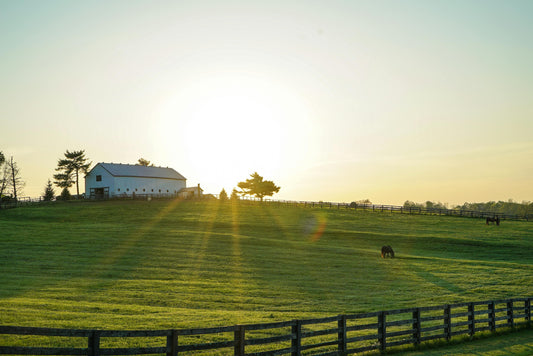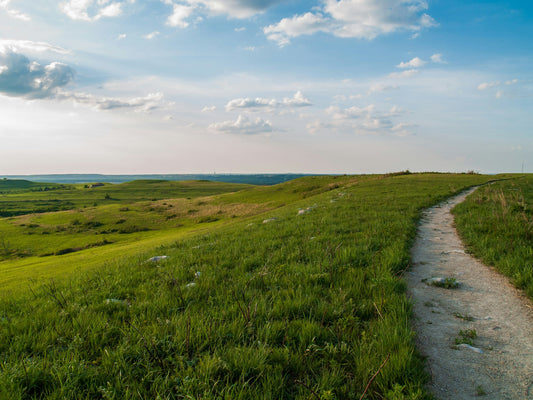The Legality of Hemp in Arizona: A Comprehensive Guide
Legal confusion and debate about hemp's newfound popularity in terms of its health, wellness, textiles, and sustainable products have raised the question, “Is Delta 9 legal in Arizona?”
Arizona's approach to hemp is multi-layered, with products regulated differently to the compliance requirements for businesses and consumers.
If you are interested in Arizona's shifting cannabis market, you should know Arizona's hemp laws, which are made up of new proposed bills, age restrictions, and special licensing.
In this article, we look at all of Arizona's hemp regulations in depth clarify some key distinctions, and look ahead to future legislation that might alter the answer to, “Is Delta 9 legal in Arizona?” query.
Defining Hemp in Arizona
Arizona's definition of hemp is not in line with the Federal distinction made by the 2018 Federal Farm Bill, which defines hemp as:
“The plant cannabis sativa L. and any part of such a plant, whether growing or not, with a delta-9 tetrahydrocannabinol concentration of not more than three-tenths percent on a dry-weight basis.”
It's important for two reasons: Hemp is considered legal below the threshold, while marijuana is still illegal for recreational use unless you're at a licensed marijuana shop in Arizona.
Legal Hemp Products Definition
According to AZ law:
“All products made from industrial hemp, including cloth, cordage, fiber, fuel, grain, paint, paper, construction materials, plastics and by-products derived from sterile hemp seed or hemp seed oil. Hemp products excludes any product made to be ingested except food made from sterile hemp seed or hemp seed oil.” Ariz. Rev. Stat. § 3-311
Why the THC Threshold Matters?
Arizona's legal approach rests upon the 0.3% THC threshold. This limit allows products to be differentiated based on intoxicating potential, allowing consumers to understand how is Delta 9 legal in Arizaona and buy hemp-derived products without being intimated by intoxication.
This is the reason why the state is focusing on non-intoxicating cannabinoids such as CBD and CBG, therefore expatriating the hemp products to the entire state.
In response to “Is Delta 9 legal in Arizona?” query, the answer totally depends on THC threshold. Products containing intoxicating effects, or those products with THC concentration above 0.3%, must be sold through licensed dispensaries and are therefore restricted, and a clear division in the market is made.
The Evolution of Arizona Hemp Law
Arizona, like many other states, had harsh laws against marijuana (yes we are talking about all marijuana products) before the 2018 Farm Bill.
Under US law, there was little legal distinction between hemp and marijuana, both strictly classified under Schedule I of the Controlled Substances Act, which meant high potential for abuse and no accepted medical use.
This broad prohibition on research, cultivation, and sale of cannabis plants, including hemp, became the bad result. Prohibition of hemp for 20th-century farmers and entrepreneurs limited the agricultural potential that many farmers and entrepreneurs were unable to explore because of.
The 2018 Farm Bill - How it Reshaped The Hemp Industry In Arizona
The 2018 Farm Bill pulled hemp out of the controlled substance list and put it into the agricultural commodity. States were able to plot their hemp and regulations regarding hemp cultivation and the sale of it.
Arizona was eager to get its hemp program up and running, but it did so with a twist!
While it opted to follow the federal THC levels for the plant, there were more state-specific requirements in place for enforcing a legitimate hemp crop.
The Future of Hemp Regulation in Arizona - Recent Legislative Developments
After the 2018 Farm Bill, Arizona has continued to fine-tune its implementation of hemp, with new legislation in 2022 including intoxicating cannabinoids delta-8 THC, delta-10 THC, HHC, and more.
Arizona Senate Bill 1401 and SB 1186 attempted to codify restrictions on these cannabinoids, including those bills classifying them as dangerous drugs, limiting sales to people over age 21, and placing penalty packaging standards.
Although neither bill passed in 2024, these views demonstrate Texas' willingness to lead the hemp regulation regulatory pack and show they aren't afraid to take the next step if the opportunity presents itself.
Arizona's Current Hemp Regulations
Hemp Cultivators and Processors Licensing Requirements
Arizona's Department of Agriculture mandates that anyone or business wanting to grow or process hemp obtain a license from the Arizona Department of Agriculture (AZDA). Application, background checks and payment of fees are the process of licensing.
Due to the threshold of 0.3% THC, it is required that growers regularly take part in periodic inspections and testing in order to confirm that their crops satisfy this requirement. Failure to comply with these standards can result in very serious penalties for growers whose crops exceed THC limits and have to be destroyed.
Obligations to Comply with Businesses Trading in Hemp Products
On top of cultivation licenses, businesses in Arizona that process, distribute, and sell hemp products must also follow tight documentation, labeling, and record-keeping requirements.
Each product must make it obvious what the THC content of the product is, the manufacturer's name, and anything else to make sure that the consumer knows what they are purchasing.
Further safeguarding compliance, companies are advised to keep records of their sourcing and testing procedures, which are also subjected to review by the regulatory.
Violations of Arizona's Hemp Regulations will lead to penalties.
Arizona laws regarding hemp contain serious consequences for any business or individual that falls in violation. From fines to criminal charges, sometimes your penalty can result in losing your license.
Several times per year, the Arizona Department of Agriculture inspects and confiscates crops or recalls products if THC exceeds 0.3%. They are also measures to make sure the Arizona hemp industry stays within the bounds of the law, protects consumers, and keeps the acceptability of the market.
Hemp-Derived Cannabinoid Product-Specific Restrictions
Topicals, Edibles, or Ingestible Hemp Products
Although Arizona permits the sale of hemp-derived topicals and edibles, sales are subject to regulations. Topicals, like lotions, creams, and balms infused with cannabinoids such as CBD, can be sold freely if they meet typical labeling and THC content requirements.
However, edibles are far more regulated and require strict labeling while abiding by Arizona's testing policies and THC threshold policies. Cannabinoids, which are the active chemicals in the plant that can cause psychoactive (or even mind-altering) effects, can especially cause such ingestible products to be more closely scrutinized.
Delta-8 THC and Other Psychoactive Cannabinoids
Arizona and its position, which Attorney General Kris Mayes is backing, essentially ensures these products can be sold through licensed dispensaries only, subject to being regulated through the state's marijuana laws.
Because of this, businesses that aren't structured as dispensaries cannot sell Delta 8 THC ir HHC products, which grants licensed dispensaries a leg up and an additional layer of regulation to protect consumers from being sold potentially intoxicating products by unregulated operators.
Hemp Future in Arizona
With the hemp industry in Arizona continuing to grow, there is likely to be future legislation that closes those gaps when you ask “Is Delta 9 legal in Arizaona?”
It includes things like intoxicating cannabinoids Delta-8 or HHC. A few legislators are calling for stricter age limitations, better labeling, and more severe management of psychoactive cannabinoids.
While nothing got passed, SB 1401 and SB 1186 demonstrate that Arizona is currently considering the impact hemp-derived cannabinoids have on public health and safety. These proposals may be revisited in future legislative sessions, although producers and brokers hope it will balance consumer access and regulatory safeguards.
Market Demand and Impact on Arizona’s Hemp Industry
Hemp products, having CBD and other non-intoxicating-intoxicating cannabinoids, are of increasing consumer interest. This demand will have a bearing on future policy revisions to introduce hemp products to the market, yet they should meet high quality and safety standards.
Also, as cannabinoid research advances, Arizona's hemp industry may even anticipate growing demand for novel products sourced from hemp.
Cannabis research is moving forward as consumer preferences also evolve. This could be the time Arizona hemp markets develop into something other than just hemp flower.
Utilization Prospects of Hemp-Derived Therapeutics and Nutraceuticals
Innovation has occurred in an area such as the wellness market and people are showing an interest in cannabis-based therapeutic products like CBD–infused health supplements, CBD-infused pain relief options, etc.
Although Arizona has restrictive regulations around psychoactive cannabinoids, the use of non-intoxicating cannabinoids is generally well accepted, opening doors to product development for applications in health and wellness markets.
For example, if the state opts to regulate hemp for therapeutic use under its guidelines, which align with Colorado's already established model, Arizona hemp businesses will be able to offer products to the health and nutraceutical markets that are not available to hemp growers in other states.
Future Challenges to the Hemp in Arizona
While Arizona has an excellent opportunity in a burgeoning hemp market, challenges remain there!
Competition with marijuana dispensaries, an unpredictable legal status towards other cannabinoids, and shifting consumer expectations all conspire to make things unclear. Further, businesses have to contend with an ever-changing regulatory environment.
But with federal oversight also a possibility and potential changes to national cannabis policies, they could impact Arizona's local market. These challenges are ones the state's hemp industry must overcome to remain in compliance and hold its ground in the larger cannabis economy.
Conclusion
What the law says about hemp in Arizona is still under process. It's a mix of state laws, federal rules, how markets are changing, and more people wanting to buy goods made from hemp. So the answer to, “Is Delta 9 legal in Arizona?” has a lot of things still working out for better results.
Arizona's hemp industry operates under a fine net, in which product restrictions, regulatory oversight, and stringent licensing requirements regulate the market. But with regards to psychoactive cannabinoids, the state is taking an extra cautious route to ensure that its hemp market is held responsible.
But as consumer demand for both therapeutic and recreational hemp products rises, Arizona's policies could still shift to best suit those needs and the industry.
Understanding the specifics of Arizona's hemp laws is important for all consumers, businesses, and policymakers. Hemp has a lot of opportunities in the future in Arizona, but it must be navigated carefully in its regulatory environment.









